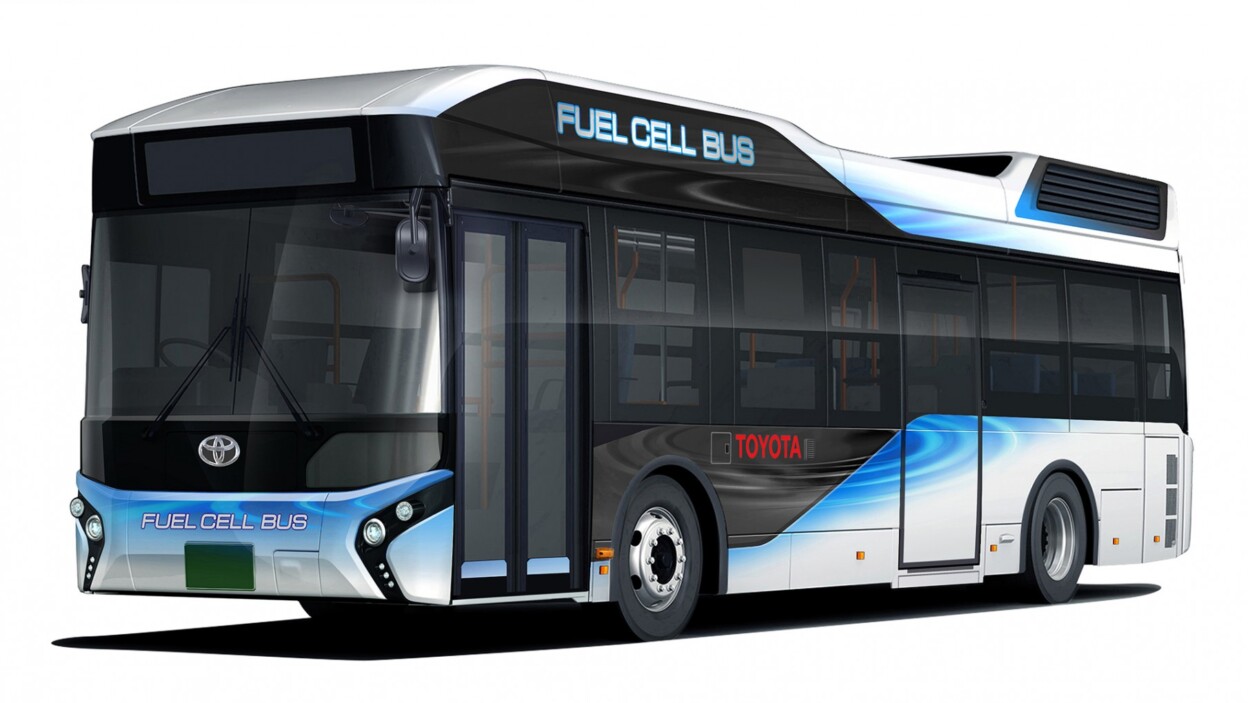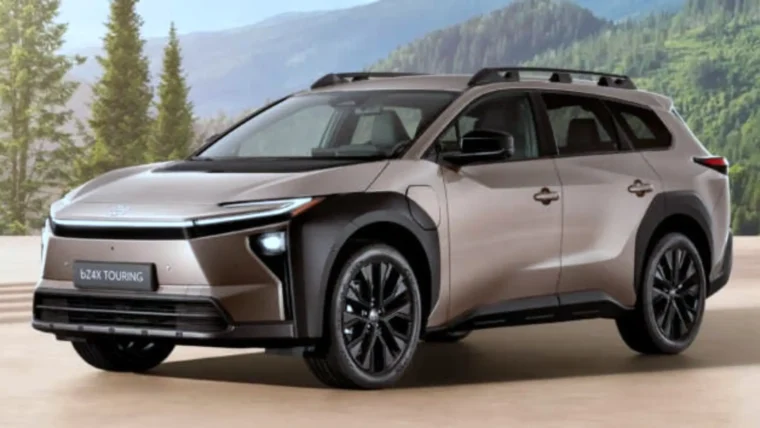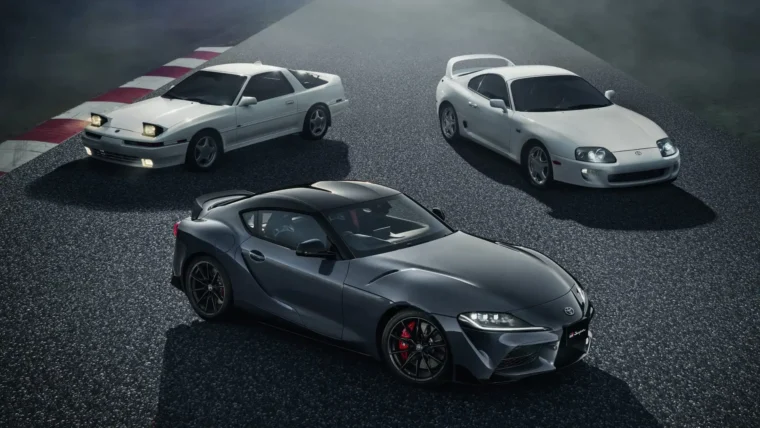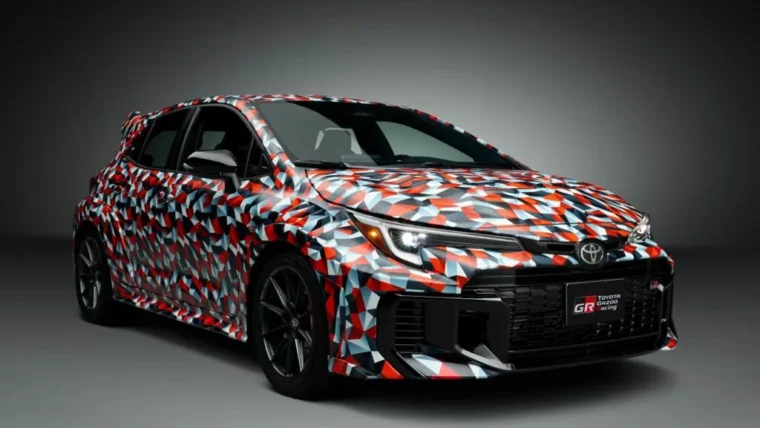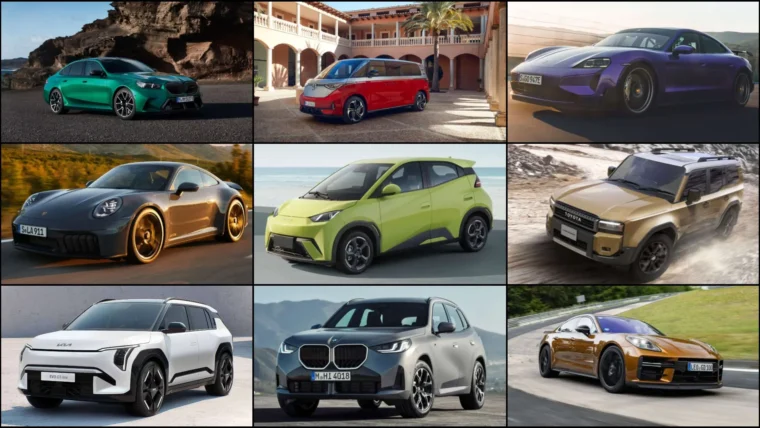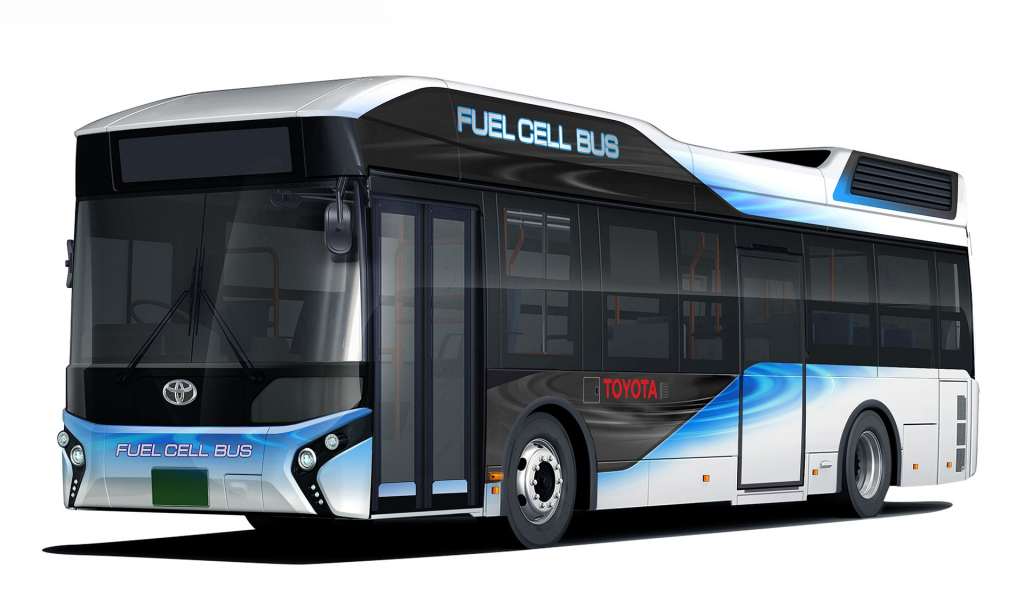
Toyota will start selling hydrogen-powered fuel-cell buses in Japan, beginning early 2017.
Having already undergone repeated field tests for practical use, the Bureau of Transportation of the Tokyo Metropolitan Government plans to utilize two of these FC buses (model name: Toyota FC Bus) as fixed-route buses. They will install large hydrogen fueling stations by the end of March.
The fuel-cell bus is likely to be priced at about 100 million yen, which is about 4 to 5 times the cost of an ordinary diesel engine-powered bus.
Toyota plans to introduce over 100 FC buses mainly in the Tokyo area, ahead of the Tokyo 2020 Olympic and Paralympic Games. The FC buses will be sold for the first time in Japan in early 2017, so as to help increase the level of understanding by the general public of the utilization of eco-friendly FC buses as a form of public transportation.
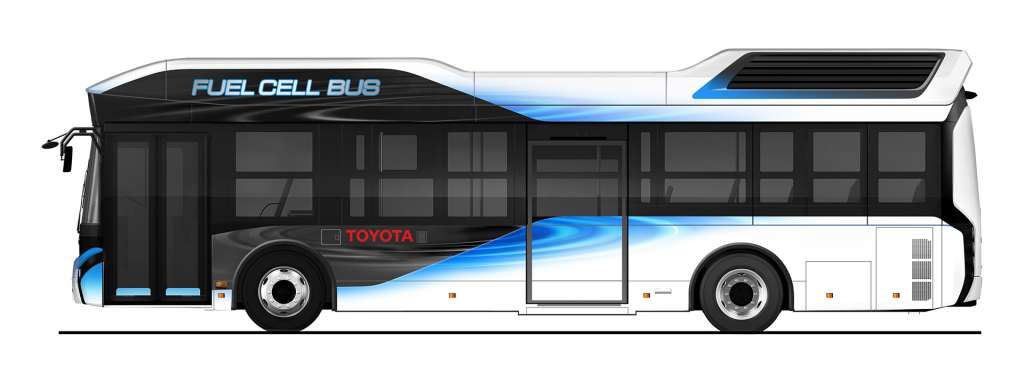
The Toyota Fuel Cell System (TFCS), which was developed for the Mirai fuel cell vehicle (FCV), has been adopted in the FC Bus to provide better energy efficiency in comparison with internal combustion engines, as well as to deliver superior environmental performance with no CO2 emissions or substances of concern (SOCs) when driving.
10 tanks will carry 600 liters of hydrogen, and that will give the vehicles a range over 200km, while refueling will only take around 10 minutes. Two on-board fuel cell stack will power a pair of electric motors with a total system output of 306 horsepower and 670 Nm of torque.
The bus also uses a high-capacity external power supply system. With a power supply capable of a 9 kW maximum output, and a large capacity of electricity supply at 235 kWh, the FC bus can be used as a power source in the event of disasters, such as at evacuation sites such as in school gymnasiums or, its electricity supply can also be harnessed for home electric appliance use.
Other posts by AF Newsdesk

